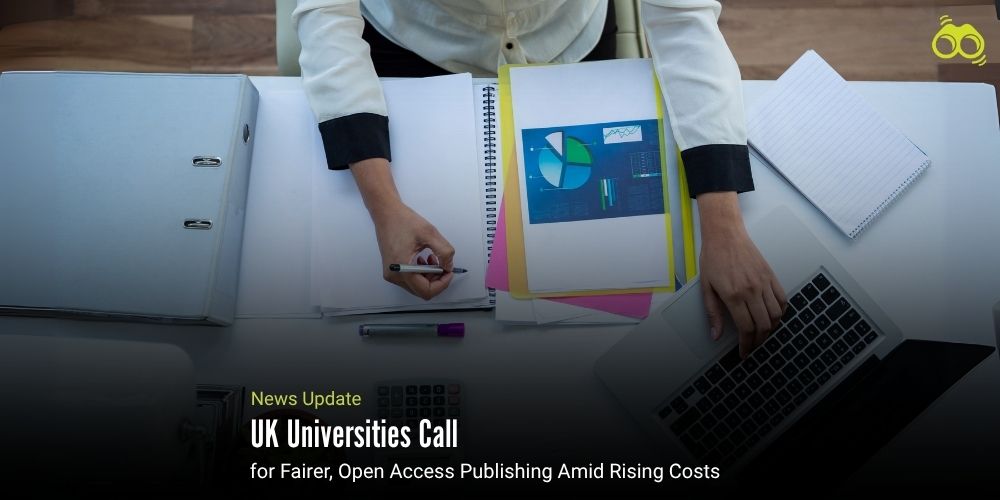N8 Research Partnership Urges Publishers to Revamp Academic Publishing Practices
Scholarly Publishing System Facing Financial Strain, Say Leading UK Universities
A coalition of leading UK research-intensive universities has called for major reforms to the scholarly publishing system, highlighting concerns over its financial sustainability for academic institutions. The N8 Research Partnership, comprising prominent universities in northern England, has urged publishers to transition towards open-access, academically rigorous, and fairly priced publishing models that ensure greater transparency. The universities emphasise that the current system places an increasing financial burden on institutions, thereby limiting access to essential research outputs and restricting the broader dissemination of academic work. Consequently, by advocating for a shift in publishing practices, the N8 group aims to enhance accessibility, affordability, and fairness in academic publishing, fostering an environment where high-quality research remains widely available.
Moreover, in its statement, the group called for greater investment in non-profit tools and platforms to encourage the wider adoption of open research practices. This appeal follows the decisions by the Universities of Sheffield, Surrey, and York to withdraw from large subscription agreements commonly referred to as “big deals” with Elsevier, citing concerns over excessive costs. In response, Elsevier stated that these institutions had either signed individual agreements or were engaged in discussions to maintain access. Notably, both Sheffield and York are part of the N8 alliance.
Given the growing financial pressures on UK universities, subscription costs have become a key target for savings. According to Jisc, universities collectively spend approximately £112 million annually on subscriptions with the five largest academic publishers. Furthermore, a survey conducted in February found that around 60% of university libraries were considering terminating their big deals. Recognising this strain, Jisc has urged publishers to provide more cost-effective solutions as it renegotiates national agreements with Elsevier, Springer Nature, Taylor & Francis, Sage, and Wiley.
Additionally, the N8 group has stated that the current negotiations, which seek greater financial sustainability and equity in academic publishing, align with its broader vision for a fairer system. It also raised concerns over the existing model, in which academics provide publicly funded research, peer review, and editorial services for free, while institutions must pay both to access and to publish that same work, an arrangement it deems unsustainable. In response, N8 universities plan to explore shared infrastructure and alternative publishing routes, such as enhanced green open access, while collaborating with researchers to promote transparent, cost-effective systems.
Charlie Jeffery, Chair of the N8 Research Partnership, commented that scholarly publishing had become dominated by a handful of commercial players whose priorities no longer aligned with those of the academic community. He emphasised that the balance had shifted too far and expressed hope that the N8’s statement would catalyse efforts to develop a more inclusive and sustainable publishing model in collaboration with publishers. Ultimately, the N8’s call for reform underscores the need for a publishing system that prioritises financial sustainability, transparency, and accessibility, ensuring that universities and researchers can contribute to academic discourse without facing prohibitive costs.
Editor’s Note:
The N8 Research Partnership’s call for change in academic publishing is not just important, it's urgently needed. For years, universities have paid high prices to access research that their staff produce, review, and edit for free. This system is controlled by a few large publishing companies and is no longer affordable or fair.
It’s a positive step that universities like Sheffield, Surrey, and York have chosen to leave expensive subscription deals. But real change will only come if more universities act together and if publishers agree to make the system more transparent and affordable. That means fair prices, more open access, and better ways to share knowledge. Now is the time for the academic world to support new publishing models, like non-profit platforms and improved open-access options. Research should not be driven by profit. It should be about sharing knowledge fairly, keeping costs reasonable, and making sure everyone has access.
Skoobuzz asserts that it is time for universities, researchers, and policymakers to work together and create a system that puts knowledge first.














0 Comments (Please Login To Continue)